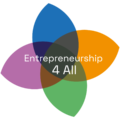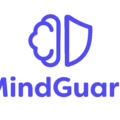
06 May PERMA-DIGITAL: A Whole School Approach to Digital Well-being
06 May, 2025
PROJECT DESCRIPTION AND OBJECTIVES:
The PERMA-DIGITAL: A Whole School Approach to Digital Well-being project aims to develop and implement a whole-school program for well-being in digital education, assessing its potential to become mainstream and scaled up through mixed methods research.
A large body of evidence from the WHO, and OECD show a declining well-being among adolescents and teachers, coupled with worsening school performance and teacher shortages.
Deteriorated well-being has been linked to digital technology misuse. As digital education becomes integral, ensuring digital well-being is a key EU priority.
KEY OBJECTIVES:
The consortium comprises the importance of integrating digital education at school and well-being and has therefore the capacity to deliver the core outputs as well as to support systemic impact and to leverage the main outcomes. For this reason, it brings the necessary expertise into achieving this objective by undertaking the following activities:
- Develop the PERMA-Digital framework, informed by Positive Psychology PERMA model, DigComp, LifeComp, and the SELFIE tool. The framework will focus on the purposeful integration of digital technologies to create positive learning experiences and the development of teachers’ and students’ competencies for digital well-being.
- Develop and implement teacher training and family resources, with action plans tested via a quasi-experimental research design.
- Evidence-based policies targeting school levels, initial teacher education, continuous professional development, and educational technology providers, for sustainable cross-sectoral actions.
- Increasing competencies and awareness, informing policy decision-making and strategic practice for a systemic whole-school approach to well-being in digital education.
TARGET GROUPS:
The activities of the ETHLAE project aim to involve several main target groups, directly or indirectly. The primary target groups are the following:
- Teacher Trainers/educators
- Teachers of upper primary and lower secondary level (10-14 years old)
- Students of upper primary and lower secondary level (10-14 years old)
- Key education stakeholders (policy makers, employees of educational authorities, inspectors, ministry of education staff, researchers)
- Educational technology developers and providers
- Family members (parents, guardians, caregivers)
PROJECT PARTNERS:
- CARDET CENTRE FOR THE ADVANCEMENT OF RESEARCH & DEVELOPMENT IN EDUCATIONAL TECHNOLOGY LIMITED, CYPRUS
- JYVASKYLAN YLIOPISTO, FINLAND
- NEOPHYTOS CH CHARALAMBOUS (INSTITUTE OF DEVELOPMENT LTD), CYPRUS
- UNIVERSITY COLLEGE DUBLIN, NATIONAL UNIVERSITY OF IRELAND, DUBLIN
- KMOP – KOMVOS EKPAIDEFSIS KAI KAINOTOMIAS ASTIKI MI KERDOSKOPIKI ETAIREIA, GREECE
- INNOVADE LI LTD, CYPRUS
- ALL DIGITAL AISBL, BELGIUM
- EUN PARTNERSHIP AISBL, BELGIUM





